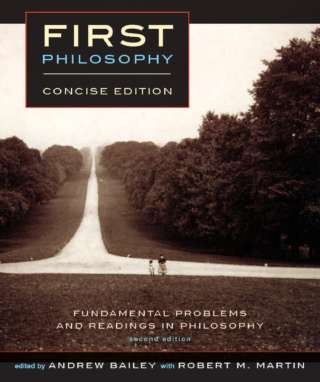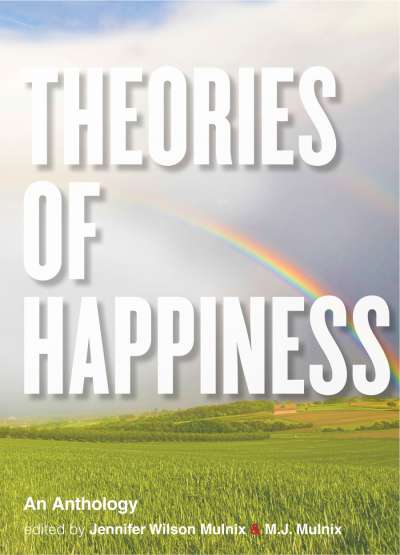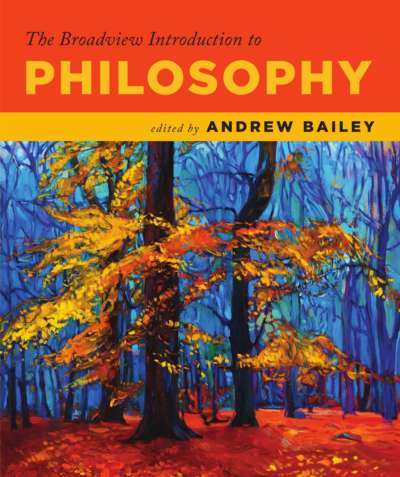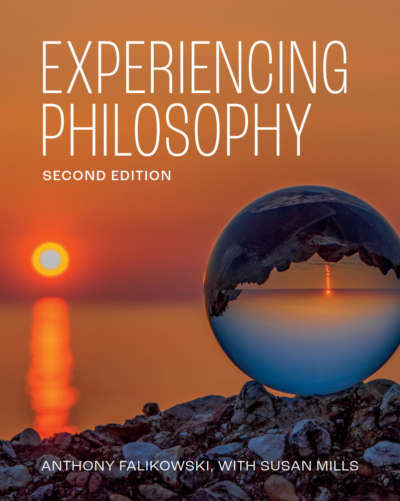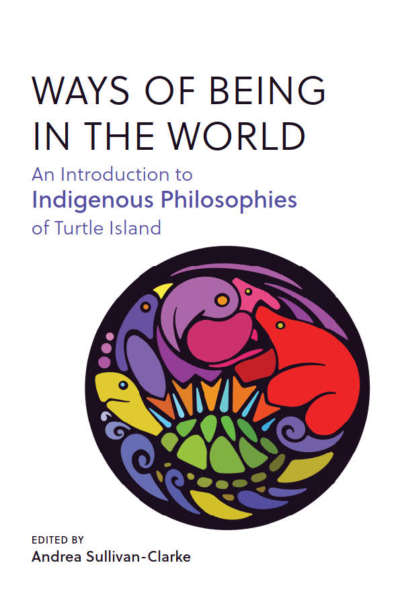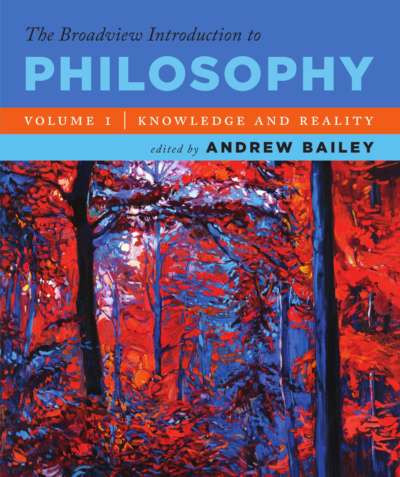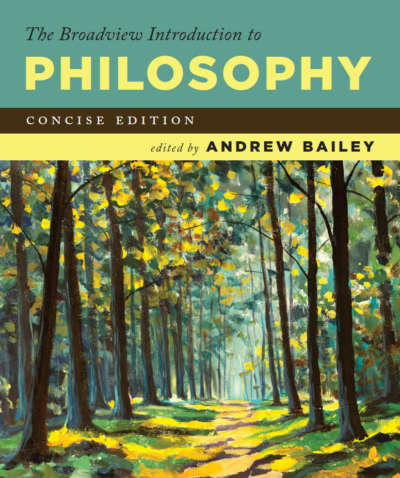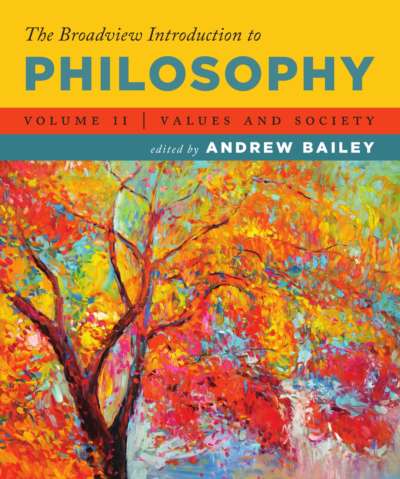First Philosophy brings together fifty-four classic and contemporary readings on seven central philosophical topics. Mindful of the intrinsic difficulty of the material, the editors provide comprehensive introductions both to each topic and to each individual selection. By presenting a detailed discussion of the historical and intellectual background to each piece, the editors enable readers to approach the material without unnecessary barriers to understanding. A brief introduction to arguments is included, as are appendices on terminology and philosophical puzzles and paradoxes.
A larger “complete” edition is also available.
A newer anthology adapted from this one, titled The Broadview Introduction to Philosophy: Concise Edition, is also available.
Comments
Praise for the first edition:
“I would recommend First Philosophy to anyone teaching an introductory philosophy course.” — Paul Churchland, University of California, San Diego
“This is an extremely well-done philosophy text. … [It] should become a standard in introductory philosophy classes.” — Patricia Blanchette, University of Notre Dame
“First Philosophy has a good selection of articles for my purposes, and the accompanying introductory background material is absolutely brilliant.” — Jillian Scott McIntosh, Simon Fraser University
“The introductions are fabulous; students find them very helpful. Overall, First Philosophy is an excellent anthology for first-year students; the text has made my job significantly easier.” — Jennifer M. Phillips, Indiana University, Bloomington
“Bailey’s extensive and informative introductions are excellent and are a great help to both students and instructors. Bailey’s choice of readings along with his wonderful introductions make First Philosophy the best introductory philosophy text I have used.” — Marc Ereshefsky, University of Calgary
“The main difference between other anthologies and First Philosophy is Bailey’s supplementary material, which is excellent. The explicative material is likewise excellent: clear, highly relevant, useful, easily understood. The wonderful supplementary material makes this a very good text indeed.” — Jeff Foss, University of Victoria
“First Philosophy combines a great selection of texts with thoughtful, accessible introductory material. It’s a wonderful, perfectly pitched introduction to the discipline for lower division students. It is always my first choice when I’m teaching ‘Intro.’” — Shannon Dea, University of Waterloo
How to Use This Book
Suggestions for Abridgement
Chapter 1: Philosophy
- What Is Philosophy?
- A Brief Introduction to Arguments
- Introductory Tips on Reading and Writing Philosophy
Chapter 2: Philosophy of Religion — Does God Exist?
- Introduction to the Question
- St. Anselm of Canterbury
- Proslogion, Preface and Chapters 2-5
- Pro Insipiente (“On Behalf of the Fool”), by Gaunilo of Marmoutiers
- Anselm’s Reply to Gaunilo
- St. Thomas Aquinas
- Summa Theologiae, Part I, Question 2, The Existence of God (In Three Articles)
- David Hume
- from Dialogues Concerning Natural Religion
- Gottfried Leibniz
Theodicy: Abridgement of the Argument Reduced to Syllogistic Form
- J.L. Mackie
- William James
- Alvin Plantinga
- “Is Belief In God Properly Basic?”
Chapter 3: Epistemology — Is the External World the Way It Appears to Be?
- Introduction to the Question
- René Descartes
- Meditations on First Philosophy: In which are demonstrated the existence of God and the distinction between the human soul and the body
- John Locke
- from An Essay Concerning Human Understanding
- George Berkeley
- Three Dialogues Between Hylas and Philonous, First Dialogue
- Immanuel Kant
- Critique of Pure Reason, Introduction
- Bertrand Russell
- The Problems of Philosophy, Chapters 1-3
- G.E. Moore
- “Proof of an External World”
- Edmund L. Gettier
- “Is Justified True Belief Knowledge?”
- Lorraine Code
- “Is the Sex of the Knower Epistemologically Significant?”
Chapter 4: Philosophy of Science – When, If Ever, are Scientific Inferences Justified?
- Introduction to the Question
- David Hume
- from An Enquiry Concerning Human Understanding, Sections IV and V
- Nelson Goodman
- Fact, Fiction, and Forecast: “The New Riddle of Induction”
- Carl Hempel
- from “Scientific Inquiry: Invention and Test”
- Karl Popper
- “Science: Conjectures and Refutations,” Sections I, IV, V, VIII, and IX
- Wesley Salmon
- “Unfinished Business: The Problem of Induction”
- C.S. Peirce
- Thomas Kuhn
- “Objectivity, Value Judgment, and Theory Choice”
- Helen Longino
- “Can There Be A Feminist Science?”
Chapter 5: Philosophy of Mind – What Is the Place of Mind in the Physical World?
- Introduction to the Question
- Gilbert Ryle
- The Concept of Mind, Chapter 1: Descartes’s Myth
- J.J.C. Smart
- “Sensations and Brain Processes”
- Hilary Putnam
- “The Nature of Mental States,” Sections II, III, and IV
- John R. Searle
- “Minds, Brains and Programs”
- Paul Churchland
- “Eliminative Materialism and the Propositional Attitudes,” Sections I and II
- Thomas Nagel
- “What Is It Like to Be a Bat?”
- Frank Jackson
- from “Epiphenomenal Qualia”
- from “What Mary Didn’t Know”
- David Chalmers
- “The Puzzle of Conscious Experience”
Chapter 6: Metaphysics – Do We Have Free Will?
- Introduction to the Question
- Paul Rée
- The Illusion of Free Will, Chapters 1 and 2
- C.A. Campbell
- On Selfhood and Godhood, Lecture IX, “Has the Self Free Will?”
- A.J. Ayer
- Daniel Dennett
- “On Giving Libertarians What They Say They Want”
- Bernard Williams and Thomas Nagel
- “Moral Luck,” Part I by Williams
Chapter 7: Ethics – How Ought We to Live Our Lives?
- Introduction to the Question
- Plato
- Republic, Book II (357a-367e)
- Aristotle
- from The Nicomachean Ethics, Books I Section 7, and Book II Sections 5—9
- Immanuel Kant
- Foundations of the Metaphysics of Morals, First and Second Sections
- John Stuart Mill
- Utilitarianism, Chapters 1 and 2
- Friedrich Nietzsche
- Beyond Good and Evil, 259-261
- Virginia Held
- “Feminist Transformations of Moral Theory”
- Mary Midgley
Chapter 8: Social/Political Philosophy – What Is Justice?
- Introduction to the Question
- Aristotle
- The Nicomachean Ethics, Book V, Sections 1-5
- Thomas Hobbes
- from Leviathan, Parts I, Chapters XIII-XV
- John Stuart Mill
- from On Liberty Chapter IV
- Karl Marx and Friedrich Engels
- from The Communist Manifesto, Sections I and II
- Simone de Beauvoir
- “Introduction” to The Second Sex
- John Rawls
- Justice as Fairness: A Restatement, Part II: Principles of Justice, 12-13
- Robert Nozick
- from Anarchy, State, and Utopia
- Susan Moller Okin
- “Justice and Gender,” Section 1, “Justice as Fairness”; Section 3, “Women and Justice in Theory and Practice”
Appendix 1: Philosophical Puzzles and Paradoxes
Appendix 2: Philosophical Lexicon
Image Credits
Acknowledgments
Sources for Quotations
Andrew Bailey is Associate Professor and Chair of the Department of Philosophy, University of Guelph.
Robert M. Martin is Professor of Philosophy (retired), Dalhousie University.
First Philosophy offers companion sites and extra content for both instructors and students.
The instructor site features teaching notes on many authors, suggested essay topics, and questions for discussion, as well as multiple-choice review questions on each of the book’s readings, which can be downloaded as Word files or in a digital format that can be uploaded to many Learning Management Systems (Blackboard, Moodle, etc.). An access code to the website is included with all examination copies.
The student companion site has additional readings, interactive self-test quizzes, materials on writing about philosophy, and sample essays. An access code to the website is included with all new copies. If you purchased a used copy or are missing your passcode for this site, please click here to purchase a code online.


